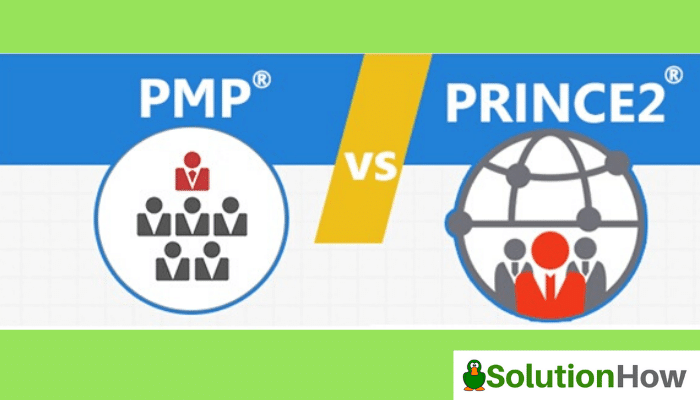
PMP VS Prince2
Introduction
The number of Global industries is constantly rising. Additionally, there is also an increase in the projects that are getting undertaken by these industries regularly. Therefore, the employment of better project management leaders has turned imperative for businesses around the globe. Numerous studies have proved that certified project managers get better job prospects and pay-raise compared to their non-certified colleagues at work since A Certification in Project management denotes that the manager has a better understanding of the project’s requirements and execution to succeed. Hence, choosing the right Certification for your project management career is essential.
PMP Certified Associate can find a better career prospect in the USA, Canada, and Australia.
Regions like that of Asia, Africa have equal demand for both the certifications. However, you would also need to look for the dominant need of your region. PRINCE2 Certified executives experience higher demands in the UK, Europe, and the Middle East.
What is the PMP Certification
PMP stands for Project Management professional certification offered by the Project Management Institute (PMI), administered in the USA. The PMP exam tests the candidate’s proficiency in using the PMBOK, the Project Management Book of Knowledge. The Qualification suggests your knowledge in applying the best principles to manage a project. It was released in the year 1996.
PMP is considered to be the standard requirement of several businesses that require a knowledge-based approach. It encompasses the study and practice of several principles and strategies that are imperative for project managers. It can also help you to amplify your earning capabilities in any industry that you work.
What is the PRINCE2 Certification
PRINCE2 stands for Project IN Controlled Environments certification offered by the Axelos Project Management Group, administered in the UK. The PRINCE2 Certification resembles the proficiency in practicing the laid-out strategies and frameworks of project-management guidelines. It divides the managerial roles into plans based on the project requirements, stages of work, and team management responsibilities. It was also released in the year 1996.
PRINCE2 builds upon the systematic organization of a project into blocks with predefined roles and responsibilities that delete the confusion about project management. It is a project-based and process-based approach that delivers success to a project. It is more beneficial to the project organization process than to the skill sets of the project manager.
Differences Between PMP and Prince2 Certifications
Both of the Certifications train you with Managing an industrial project but with different approaches. Beyond the knowledge-based and project/ process-based approaches of PMP and PRINCE2, there are several differences in prerequisites, exams, methods, and perks of Certification.
Prerequisites
The criteria to apply for PMP exams requires the candidate to hold
- A secondary degree of high school diploma or global equivalent.
- 7,500 hours of leading projects
- Five years of Project Management experience
- 35 hours of Project Management education
OR
- A Bachelor’s degree of graduation or global equivalent
- 4,500 hours of leading projects
- Three years of Project Management experience
- 35 hours of Project management education
There are no prerequisites to apply for PRINCE2 exams. Basic project management experience works well to apply for Foundation program. However, Candidates need to take an exam to qualify for the Practitioner program of PRINCE2 Certification.
Exams
The PMP exams test the skillsets of the candidate based on thePMBOK guidelines for Project management. The exam is conducted in a closed-book format with no negative markings. The candidates need to answer 200
simple objective type questions within 4 hours. The cost of the examination is $405 for the members of PMI and $555 for non-members. The PMP certification can be maintained by attaining 60 Professional Development Units (PDU) every three years.
PRINCE2 Foundation exam tests the candidate’s understanding of the terminologies and framework of Basic Project Management. Seventy-five simple objective type questions are to be answered within 1 hour of duration in a closed-book format with no negative markings. Candidates need to secure 50% of the total marks to pass. The Certification needs no renewal.
PRINCE2 Practitioner exam tests the candidate’s capabilities to apply the knowledge. It is scenario-based to test your project management implementation skills. Candidates need to answer a total of 80 questions within 2.5 hours and secure at least 55% of total marks for qualifying. It is an open book exam conducted without negative marking. The cost of PRINCE2 varies from region to region. The Practioner Certification is valid for five years, which can be renewed by appearing the re-registration examinations conducted every 3-5 years of the preceding exam.
Methods of Learning
PMP works on the 10 Knowledge areas mentioned in the PMBOK. It includes integration, scope, time, cost, quality, human resource, risk, communication, procurement, Stakeholder management.
PRINCE2 works on seven primary themes. They include Business case, organization, quality, plans, risks, charge, and progress. These seven themes find their counterparts in the knowledge areas of PMP Certification. However, the knowledge areas of PMP do not have their refection in the seven themes of PRINCE2.
The same happens with the seven processes of PRINCE2 that includes the steps from the starting to the delivery and closing of a project. They have their reflections in the five process groups defined by the PMBOK. However, the vice-versa stands invalid.
Perks of Certification
The PMP certified Project managers get a vast range of networking opportunities and have the chance to get better employment with better salary packages. They have the skill sets to apply on the ongoing live projects and are governed primarily by their experiences. They combine hard and smart work.
The PRINCE2 certified project managers can analyze projects from the perspective of the generally accepted principles in the field of management. They combine it with their perspective and experiences with projects by considering the risk factors.
The predefined methods save a lot of energy and time while eliminating confusion from the project’s work distribution. PRINCE2 PMs hold better employment opportunities and pay-raise potentials.
Deciding Which One to Pursue
Several key factors are needed to be taken into consideration while selecting a certification over another.
Gender
PMI women professionals mostly receive a payment less than their male counterparts with a difference up to $11,000. In the case of PRINCE2 professionals, Women receive up to $13,000, less than their male counterparts.
Genre
A PMP certified project manager can earn better in the resource sector or the industries based upon primary sectors of the economy like agriculture, mining, etc.
Endnote
Your choice of the right project management certification should depend upon your region of practice and expectations from your career. Pursuing both degrees could also prove beneficial since one gives you the knowledge, and another provides you with a different perspective to examine a project. What could interrupt your choice to pursue both are the availability of time, resources, and capacity to distinguish between the different principles used by PMI and APMG to tackle a process.




You must be logged in to post a comment.